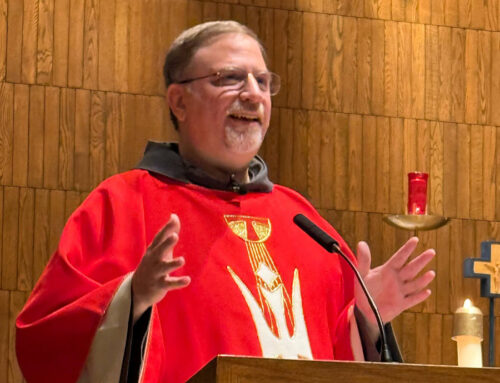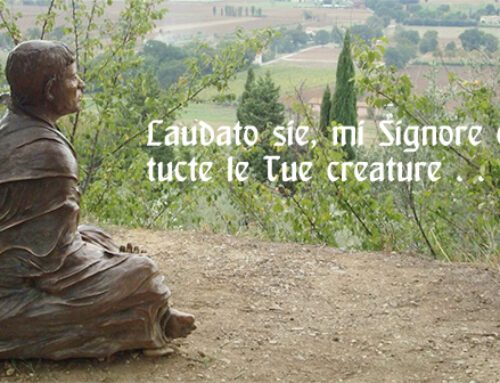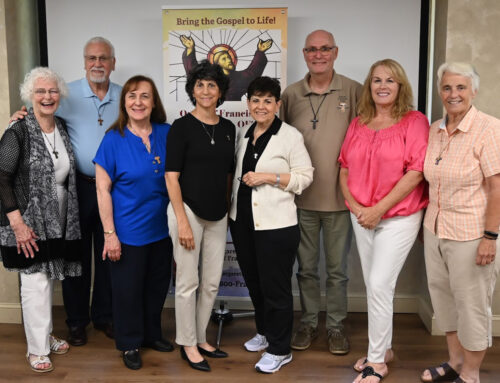(This article originally appeared in the TAU-USA Summer 2025 Issue #116)
Canticle of the Creatures Reflections – Part 2
Praised be You, my Lord, through those who give pardon
for Your love, and bear infirmity and tribulation
Finding Meaning in Suffering
by Sharon Winzeler, OFS
Communications Committee Chair
What do St. Francis of Assisi and Viktor Frankl, famous psychologist and survivor of four World War II concentration camps, have in common? They both realized that suffering could provide purpose and meaning in our lives.
As Francis said in the Canticle and Frankl said in his book Man’s Search for Meaning, when we approach suffering with a meaningful response, we affirm our humanity and our capacity for spiritual growth.
Both men knew that avoidance of suffering was futile. Francis shows us that it brings us closer to Jesus. Frankl reveals that suffering brings us closer to what matters in life. Both men testify that suffering brings growth in our spirituality. Jesus acknowledges that given the choice, we would avoid suffering, as recorded in Matthew 26:39. “My Father, if it is possible, let this cup pass from me; yet not as I will, but as you will.”
St. Francis reveals that those who forgive and suffer with love and patience are followers of Jesus and witnesses of God’s grace. Their actions – especially in painful or unjust situations – are powerful forms of worship and testimony to divine love. Jesus shows us the path to forgiveness in Luke 23:34: “Father, forgive them, for they know not what they do.”
Our Franciscan values of humility, compassion, and joyful acceptance of suffering as a path to union with God help us understand difficult times in life.
Frankl said that when faced with adversity, we have two choices. We can despair or we can create. When we create love, endurance, and forgiveness, we create meaning on a spiritual level, which is how Frankl identifies man’s search for meaning in life. It reflects Francis’s quest for closeness to God.

In his studies, Frankl found the most profound reaction to adversity is doing the next best thing – forgiving or bearing trials and tribulations with acceptance and joy.
We don’t get to skip the hard parts of life, but we do have a choice on how we react to them. When we hurt, we can open ourselves to people and beauty. In other words, according to Frankl, we choose our attitude.
This choice is an extension of Francis’s definition of perfect joy. As Francis and Brother Leo were once walking in the cold, Francis said, “If we arrive at our friary and the porter refuses to let us in—calls us thieves, beats us, and leaves us out in the freezing night—and we bear this injustice patiently and with love, that is perfect joy.” Francis chose the attitude of perfect joy.
Frankl endured three years of unimaginable suffering and the loss of his family in the concentration camps and emerged with a profound sense of empathy and a mission to help others find meaning in their lives. He chose an attitude of compassion and purpose.
In his canticle, Francis shows us that pain and suffering present us with the ability to create a beauty that touches others and brings us closer to God and find purpose and meaning in our lives that Frankl’s studies say we need.




Leave A Comment